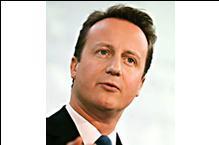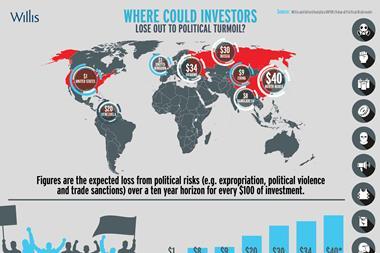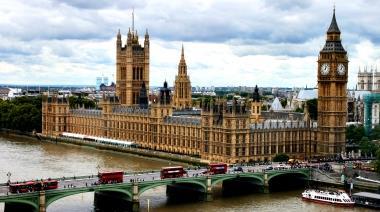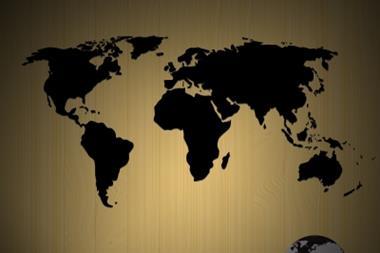Firms with operations in the BRICS countries face increased political risk in 2014 — Aon
Businesses with investments in the BRICS countries face an increased exposure to political risks, including political violence, government interference and sovereign non-payment risk, according to Aon’s political risk map.
The firm’s interactive map measures political risk in 163 countries and territories to help companies assess and analyse their exposure to exchange transfer, legal and regulatory risk, political interference, political violence, sovereign non-payment and supply chain disruption.
In each specific risk category, as well as the overall rating, each country is rated as low, medium-low, medium, medium-high, high or very high. EU countries and Organisation for Economic Co-operation and Development countries are not rated in the 2014 map.
Aon’s political risk map 2014 shows the BRICS markets have an increased risk rating:
- In Brazil, political risks have been increasing from moderate levels as economic weakness has increased the role of the government in the economy. This is of particular concern given this year’s World Cup and the 2016 Olympics.
- Russia’s rating was downgraded owing to recent developments with Ukraine and the annexation of Crimea. Political strains and focus on geopolitical issues have exacerbated an already weak operating environment for business and exchange transfer risks have increased following the risk of new capital controls. Russia’s economy continues to be dominated by the government, so economic policy deadlock has brought growth to a standstill and, with it, an increase in the risk of political violence.
- India’s rating was downgraded, with legal and regulatory risks elevated by ongoing corruption and moderately high levels of political interference. Territorial disputes, terrorism and regional and ethnic conflicts also contribute to elevated risks of political violence.
- China’s rating was downgraded to medium high. This deterioration in political risk, including an increase in political violence, has occurred at a time of slowing economic growth, which suggests that the economic policy deadlock and economic sluggishness are mutually reinforcing.
- South Africa’s rating was downgraded. Despite having strong political institutions, South Africa is struggling from recurrent strikes, which have become the major means of wage setting and weaken the outlook for business and raise financing costs.
Quarterly updates are an important feature of the map, according to Aon Risk Solutions head of political risk Mathew Shires, who said: “The volatile situation in Ukraine began to be highlighted in our quarterly updates in mid-2013. These updates assist our clients in their strategic and financial decision-making.
“The degree of risk and exposures vary considerably in the emerging markets and this highlights the need for institutions to be able to generate their own high-level overview of political risk and how it affects them; for this they need access to a sophisticated risk tool such as the online map.”




















No comments yet